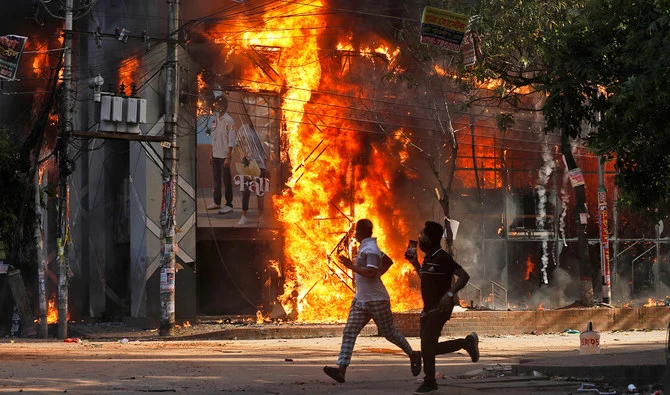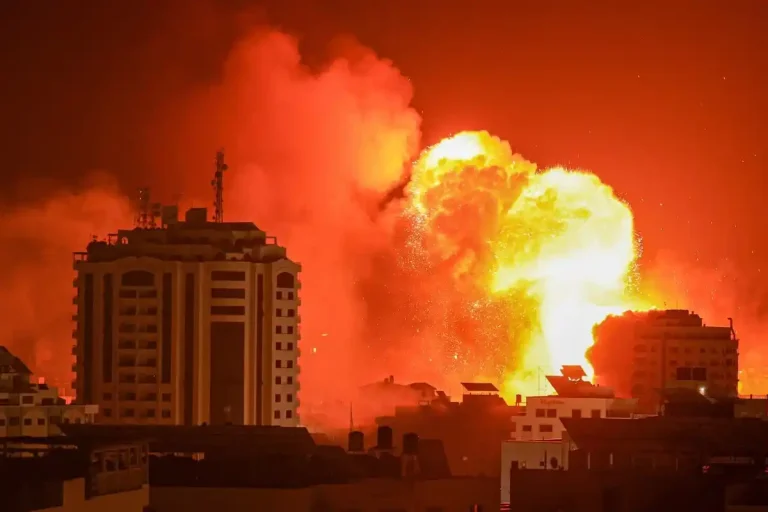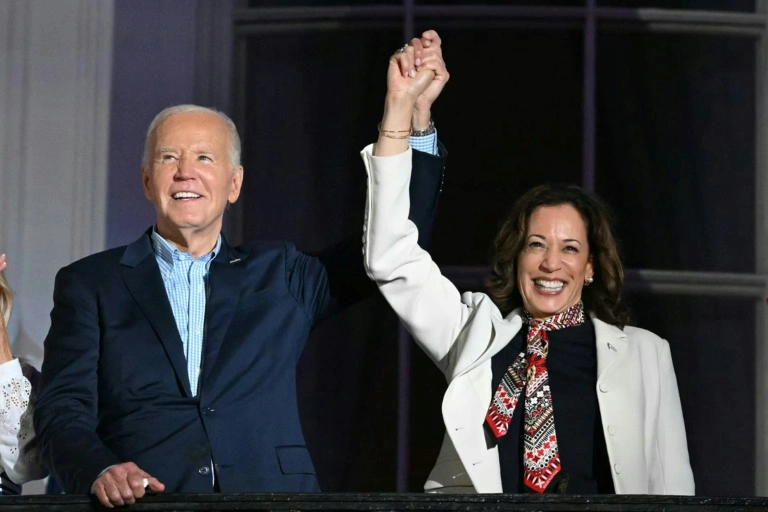Islamabad – By Our Correspondent
Uncertainty looms over Bangladesh as the nation edges toward a potential military takeover amidst escalating protests demanding Prime Minister Sheikh Hasina’s resignation. Over 300 deaths have been reported since the unrest began, plunging the country into turmoil. Sources in Dhaka suggest that an interim military government may soon be established, with military chief Waker-Uz-Zaman expected to address the nation on Monday. According to the Bangladesh High Commission in Delhi, Prime Minister Sheikh Hasina has resigned.
Bangladesh is in upheaval once more, with nearly 100 people killed on Sunday during clashes between protesters calling for Hasina’s resignation and security forces, along with supporters of the ruling party. Last month, violence ignited by student groups protesting reserved quotas in government jobs resulted in at least 150 deaths and thousands of injuries. The ‘Students Against Discrimination’ group, which led last month’s protests, is spearheading the latest demonstrations.
While the protests paused after the Supreme Court abolished most quotas on July 21, demonstrators returned last week demanding a public apology from Hasina for the violence, the restoration of internet connections, the reopening of college and university campuses, and the release of those arrested. By the weekend, the protests had evolved into a campaign demanding Hasina’s ouster and justice for those killed last month. The students’ group has called for a nationwide non-cooperation movement with a single demand: Hasina must resign.
Protesters accuse Hasina’s government of the July violence. Her critics and human rights groups allege that her administration used excessive force against demonstrators, a claim the government denies. Initially, Hasina, 76, and her government attributed the violence to the Islamic party Jamaat-e-Islami and the main opposition Bangladesh Nationalist Party (BNP), denying student involvement. However, as violence surged again on Sunday, Hasina labeled the perpetrators as “terrorists” rather than students, intent on destabilizing the nation. The students’ group has rejected Hasina’s offer for talks to resolve the crisis.
Demonstrations began at university campuses in June after the High Court reinstated the quota system for government jobs, overturning a 2018 decision by Hasina’s government to scrap it. The Supreme Court suspended the High Court order after the government’s appeal and ultimately dismissed it last month, mandating that 93% of jobs be open to candidates based on merit.
Experts attribute the unrest to stagnant job growth in the private sector, making public sector jobs, with their regular wage hikes and privileges, highly attractive. The quotas angered students facing high youth unemployment, with nearly 32 million young people out of work or education in a population of 170 million. Bangladesh’s economy, once one of the world’s fastest-growing due to its booming garments sector, has stagnated. Inflation is around 10% per annum, and dollar reserves are shrinking.
Hasina retained power for a fourth consecutive term in a January general election boycotted by the BNP, which accused her Awami League of attempting to legitimize a sham election. The BNP claimed that 10 million party workers were in hiding ahead of the election, with nearly 25,000 arrested following deadly anti-government protests on October 28. Hasina blamed the BNP for instigating the protests that rocked Dhaka ahead of the election and resulted in at least 10 deaths.





